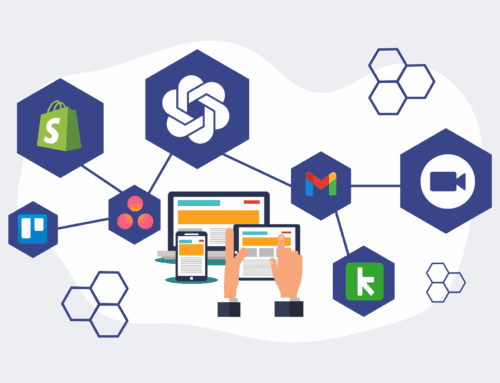Beyond Daily Backups: Exploring Continuous Data Protection (CDP) and Near-CDP for Business Resilience
In today’s data-driven world, the phrase “data is gold” has become a business mantra. Yet, many organizations still rely on traditional daily backups, a practice that, while essential, increasingly falls short of modern demands for data integrity and business continuity. The hidden cost of data loss isn’t just about restoring files; it’s about lost productivity, damaged reputation, compliance failures, and ultimately, a direct hit to your bottom line. At 4Spot Consulting, we’ve seen firsthand how a reactive backup strategy can cripple operations, especially for high-growth companies dealing with complex CRM data and critical operational systems.
The stark reality is that the gap between your last backup and a system failure represents an unacceptable window of data vulnerability. What if critical client interactions, sales updates, or new candidate profiles entered moments before a server crash are lost forever? For businesses operating in fast-paced environments like HR, recruiting, or legal services, losing even an hour’s worth of data can have cascading effects, costing tens of thousands in lost opportunities and remediation efforts. This is where the strategic shift from traditional backups to more robust solutions like Continuous Data Protection (CDP) and Near-CDP becomes not just an advantage, but a necessity.
The Limitations of Traditional Backups in a Dynamic Business Landscape
Traditional daily or even hourly backups operate on a snapshot principle. They capture the state of your data at specific, predetermined intervals. While this method is tried and true for disaster recovery, it inherently carries a Recovery Point Objective (RPO) — the maximum tolerable period in which data might be lost from an IT service due to a major incident — that can be hours long. For many businesses, this RPO is simply too long. Imagine a busy recruiting firm processing dozens of applications, scheduling interviews, and updating candidate statuses throughout the day. A system failure at 3 PM, with the last backup at 2 AM, means a full day’s work is gone.
Beyond the RPO, the Recovery Time Objective (RTO) — the targeted duration of time and a service level within which a business process must be restored after a disaster — for traditional backups can also be substantial. Restoring large datasets from traditional backups can take significant time, often measured in hours or even days, leading to prolonged operational downtime. This delay doesn’t just impact internal processes; it affects client trust, employee morale, and market perception. The modern business environment demands near-instant recovery and minimal data loss, pushing traditional methods to their limits.
Understanding Continuous Data Protection (CDP): The Gold Standard
Continuous Data Protection (CDP) represents a paradigm shift in data recovery. Unlike scheduled backups, CDP systems continuously capture and track changes to data, storing them off-site or on separate storage. This creates a complete journal of all data modifications, allowing for granular, point-in-time recovery. With CDP, you can effectively “rewind” your systems to any specific second in the past, right before a corruption event, accidental deletion, or cyberattack occurred. The RPO with CDP is virtually zero, meaning almost no data is lost.
For organizations managing sensitive and constantly evolving data, such as CRMs filled with client interactions or talent pipelines in HR systems, CDP offers unparalleled peace of mind. It ensures that every new lead, every updated client note, every candidate interaction is protected instantaneously. This level of protection is crucial for maintaining compliance, preserving historical data for audits, and ensuring that your most valuable asset — your information — is always available and accurate. At 4Spot Consulting, we integrate such advanced strategies into our clients’ automation frameworks, ensuring that data integrity is baked into their operational resilience.
Near-CDP: A Pragmatic Approach for Balancing Protection and Performance
While CDP offers the ultimate in data protection, its resource demands and infrastructure requirements can be substantial. For some businesses, particularly those operating with tighter budgets or less critical data change rates, Near-CDP offers a compelling alternative. Near-CDP solutions approximate the capabilities of true CDP by performing very frequent snapshots – typically every few minutes – rather than continuous journaling of every single change.
This approach significantly reduces the RPO compared to daily backups, often to just a few minutes, while being less resource-intensive than full CDP. Near-CDP provides a strong balance between robust data protection and operational efficiency, making it an excellent choice for applications where a few minutes of data loss is acceptable but hours are not. Think of CRM systems like Keap or HighLevel, where frequent updates are common, but the sheer volume of changes might not warrant the full overhead of a true CDP system. Implementing Near-CDP through smart automation means we can protect your critical business data with minimal disruption and maximum efficiency, ensuring that your talent pipeline remains intact and your client relationships are secure.
Implementing Advanced Data Protection with 4Spot Consulting
The choice between CDP, Near-CDP, or even optimized traditional backups depends on your specific business needs, risk tolerance, and operational budget. However, the overarching goal remains the same: to minimize data loss and maximize recovery speed. At 4Spot Consulting, our OpsMap™ diagnostic helps identify these critical data points, assess your current vulnerabilities, and design a tailored data protection strategy that aligns with your business objectives.
Leveraging our expertise in automation and AI, we don’t just recommend solutions; we build them. We integrate robust data protection mechanisms directly into your operational workflows, ensuring that your CRM, HR systems, and other critical data sources are not only automated for efficiency but also resilient against unforeseen events. By moving beyond mere daily backups, you’re not just protecting data; you’re safeguarding your future, your reputation, and your ability to scale effectively. Investing in advanced data protection is an investment in uninterrupted business growth and peace of mind.
If you would like to read more, we recommend this article: Protecting Your Talent Pipeline: Automated CRM Backups & Flexible Recovery for HR & Recruiting








